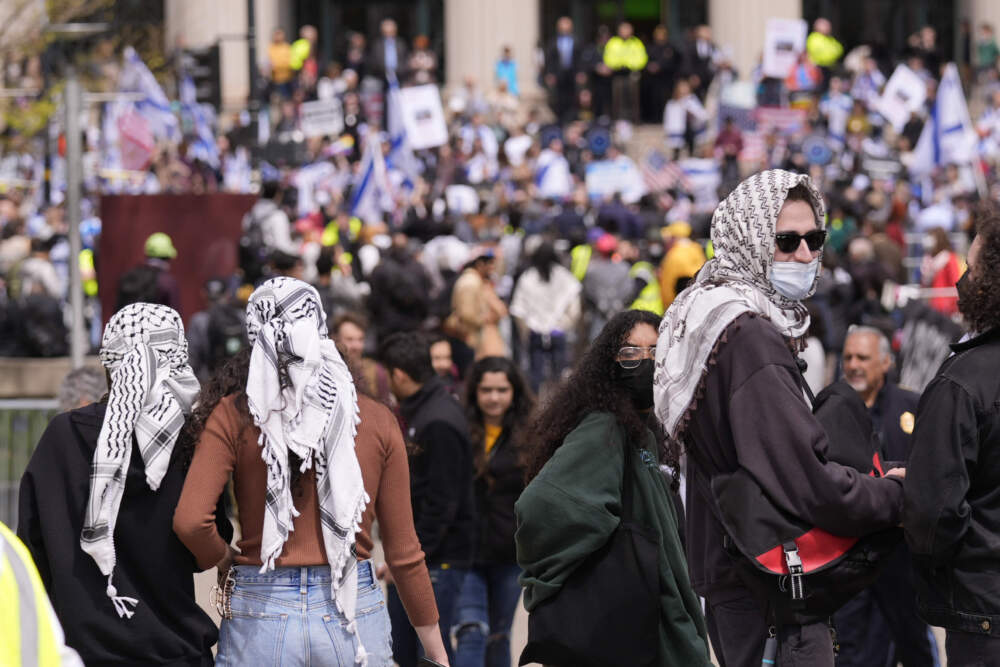
Students have returned to campuses across Massachusetts, and students at schools like Massachusetts Institute of Technology have also returned to protesting the war between Israel and Hamas.
But MIT has new rules governing student protests. So do many others in the state, from Emerson College to Harvard University.
WBUR’s Morning Edition asked Harvey Silverglate, a longtime civil liberties attorney and co-founder of the Foundation for Individual Rights and Expression, to break down these changes.
Highlights from this interview have been lightly edited for clarity.
Interview Highlights
On how the First Amendment applies to public and private colleges:
“The First Amendment only applies technically to public universities, because the Constitution governs government conduct, not private conduct in that regard. However, private universities have voluntarily committed themselves to this notion of academic freedom, which means that, with the exception of very few American universities, and those are largely religious colleges, the rules are the same for public and private.
On Emerson College, where leaders have said that it’s not subject to the First Amendment as a private institution:
“Now, Emerson, it’s a private university. It has the absolute right, and students have an absolute right to refuse to go to Emerson because they know that they will be heavily restricted in what they can say. We’ll see what happens. We’ll see how it unfolds. I predict this is going to be very harmful to Emerson. Some students won’t mind it. I would assume most students will. There is an American ethos of free speech.”
On the most surprising new policy at any local schools:
“Well, as a result of some of the chaos going on between the Israelis and the Palestinians, universities have been quite confused as to where the line is drawn — encampments, for example. Some universities have started to get rid of encampments. Now, encampments are lawful. In fact, they are constitutionally protected at public universities, and they’re protected by academic freedom. You certainly can have an encampment that makes a point. It’s no different than somebody walking with a sign saying, ‘on strike,’ or whatever.”
On whether he expects to see legal challenges to new rules:
“[Yes.] In fact, I would expect that the foundation that I co-founded, and I still serve on the board, the Foundation for Individual Rights of Expression, will probably do some of the challenging, [and] the ACLU of Massachusetts. The free speech community is fairly well organized, reasonably well-funded and very vigilant. And I expect there will be challenges.”
On the line between free speech and harassment:
“I actually had a lot of experience with this during the Vietnam War, when the campuses erupted in protest. A group of students assigned themselves to various professors who were consulting with the Department of Defense. They waited outside the professor’s home, and when the professor would leave to walk to campus to teach a class, they would follow the professor, and they would be chanting, ‘war criminal, war criminal,’ or ‘murderer, murderer, murderer.’
“I represented a number of these students, and the defense that I used, and which was successful, was that the students had to stay a certain number of feet in back of the professor. They couldn’t surround the professor. They couldn’t go and block the professor by walking in front of them. And they couldn’t follow the professor six inches behind him and breathe down his neck. But they could be six or seven feet behind him. And that prevailed, everybody coexisted in that situation.
“So, we’re talking here about drawing lines, and constitutionally, they’re not that fine lines. The thing about the Bill of Rights is it’s governed by common sense.”
This article was originally published on WBUR.org.
